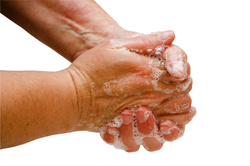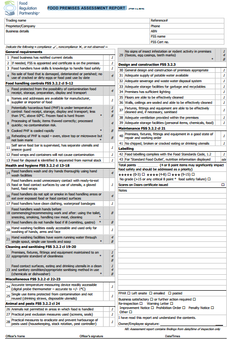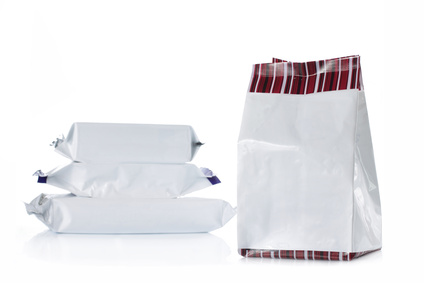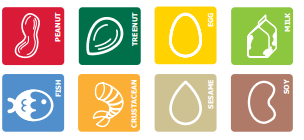( click here )
|
Businesses that manufacture or wholesale food in NSW fall under the NSW Food Authority’s Manufacturer/Wholesaler Food Inspection Program and are required to have inspections. These inspections will be unannounced visits. This NSW Food Authority fact sheet outlines what wil be expected and inspected at a food processing, importing or wholesaling business.
( click here )
 Under the Food Standards Code, a food handler must take all reasonable measures not to handle food or food surfaces in a way that is likely to compromise the safety and suitability of food and protect food from contamination. Food handlers also have specific responsibilities relating to health and hygiene. This NSW Food Authority fact sheet outline the Health and Hygiene responsibilities. (click here) The Department of Health & Human Services has launched a new template supplement, for class 2 retail and food business who use Sous Vide practices as a method of cooking or cook chill high risk food. Food safety program template Supplementary practices section. Sous Vide. This supplement is for use with the Food Safety Program template for class 2 retail and food service businesses, No.1 version 3. The supplement outlines the requirements, and time and temperature parameters for businesses using sous vide cooking practices. This supplement template informs industry standards for Sous Vide Cooking processes and controls. This document is required reading for the CTS Audit a Cook Chill Process training program.
The Food Regulation 2015 (NSW) requires certain food businesses in the NSW hospitality and retail food service sector to have at least one trained Food Safety Supervisor (FSS).
The NSW Food Authority manages the certification of Food Safety Supervisors. All information regarding gaining a Food Safety Supervisor is available on the NSW Food Authority website (click here). Businesses in other states approved by NSW Food Authority as a Registered Training Organisation to deliver, assess this qualification. The Food Standards Code allows food businesses to hold food between 5°C and 60°C for short, measured periods of time. The time for which food can be safely held between 5°C and 60°C is commonly referred to as the ‘4-hour/2-hour rule’.
The NSW Food Authority has a guideline on how businesses should apply this 2- 4 hour rule. (Click here ). This should inform or assist the food safety supervisor, HACCP team leaders or others responsible for implementing a workplace food safety program. The NSW FA has a brief video on the responsibilities of retail and food service businesses. This is ideal to show your staff as part of induction training.
(Click here)
The NSW Food Authority (the Food Authority) has prepared the NSW Food Safety Schemes Manual (the Manual) to specify certain requirements for the following Food Safety Schemes under the Food Regulation 2015: This outline the tests and frequency for NSW business that fall under
Dairy food safety scheme, Meat food safety scheme, Plant products food safety scheme, Seafood safety scheme , Vulnerable persons food safety scheme , Egg food safety scheme. (Click here)  Handwashing is the most critical action to avoid cross contamination within a food business. Proper hand washing at the right times helps to prevent microorganisms spreading to food. Print this NSW Food Authority guide off to give to you staff, at induction or as part of regular food safety and hygiene training. ( click here ) The Food Standards Code requires all food businesses in NSW to provide information about the eight most common allergens on food labels of packaged foods:
The NSW Food Authority has a simple guide on Standard 1.2.3 Mandatory Warning and Advisory Statements and Declarations. ( click here) The law requires every food business to provide accurate information about allergens in foods food businesses produce, sell or serve. All staff need to be aware of the risks food allergies pose, and be clear on how to identify and manage them.
The NSW Food Authority has published a Allergy awareness guideline for retail and food service businesses. This provides information on the Allergens in Australia and how ensure to accurate information is on a label or given by staff selling unpackaged food made at the premises when a customer asks for information on allergens in the food for sale or service. Useful resource for Food Safety Supervisors, and HACCP team leaders. Refer the NSW Food Authority website or click here Businesses are required to maintain a calibration program, in order to ensure thermometers do not
exceed a +/- 1°C tolerance. Calibration of thermometers can be affected and possibly produce inaccurate results when the boiling point of water of 100°C is used in an area of high altitude. Those calibrating thermometers and undertaking internal and external audits should note the reduced boiling point of water at higher altitude. The NSW Food Authority has published a table of the various boiling points of water in°C at varying altitudes. This information and table can be found here. The Food Regulation 2015 requires that certain industry sectors are licensed with the NSW Food Authority.
The Food Authority, or approved NSW Food Authority regulatory auditor undertakes regular audits and inspections of all licensed businesses. Further information about the requirements for audits of licenced food businesses in NSW can be found at the NSW Food Authority website, or click here |
Categories/
|
||||||||||




 RSS Feed
RSS Feed
